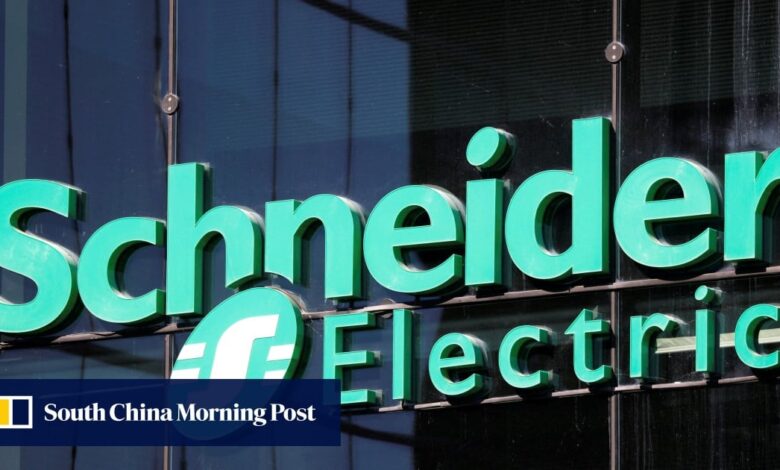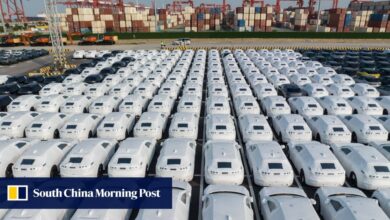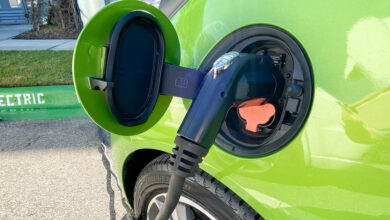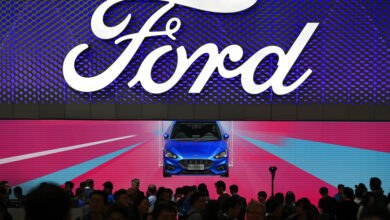Schneider plans to quintuple EV charger sales in line with Hong Kong government’s push to expand infrastructure

Schneider Electric is eyeing a massive surge in sales of electric vehicle (EV) chargers in Hong Kong amid a rapid adoption of the emissions-free cars in the city.
The French energy-management and digital automation firm expects to sell 15,000 EV chargers by 2026, a near fivefold jump from around 3,300 charging points installed by the company, according to Travis Kan, director of digital energy and power products at Schneider Electric Hong Kong.
The company will place its chargers, which can be found in 90 locations across the city, mostly shopping malls, in more residential estates in line with the government’s push to expand the EV charging infrastructure.
“We will have direct sales to residential estates once we know they have the infrastructure ready,” said Kan. “We hope to let homeowners know that we provide this option.”
Schneider also plans to partner with car sellers, to “start selling our EV chargers where prospective buyers purchase their vehicles”, he added.
Hong Kong had 81,435 registered plug-in EVs as of February, a 60.7 per cent increase from 50,665 a year ago, according to data from the Transport Department. EVs account for 12.8 per cent of the city’s private cars.
However, there were only 8,056 EV chargers for public use, including 4,662 medium-speed chargers and 1,397 quick chargers, as of end-March.
The government has been supporting the roll-out of EV charging infrastructure, introducing a HK$2 billion (US$256 million) incentive scheme in 2020. This was subsequently enhanced by HK$1.5 billion, to subsidise the installation of charging infrastructure in 140,000 parking spaces in about 700 car parks in existing private residential buildings.
To meet the increasing demand for EV charging facilities in residential buildings, Schneider Electric launched its EV chargers for homes last month. The Schneider Charge is priced at HK$6,980, including a seven-metre cable and installation.
“When developers start a new project, the whole car park is often equipped with chargers,” Kan said. “Through our business-to-business channels, contractors and property developers are our main targets.”
The company also has a network of distributors and engineering contractors, enabling them to take the EV charging systems to residential estates that need to upgrade their infrastructure, he added.
Last month, property developer Sino Group partnered with oil and gas company Sinopec to install 62 EV chargers at eight of its projects, including office building Exchange Tower, shopping centre Olympian City 3 and residential development Pacific Palisades.
The number of EV chargers installed at Sino Group’s properties has risen to more 1,700, said Bella Chhoa, the director of asset management at the developer.
“We [will] actively collaborate with like-minded partners to expand the coverage of EV charging stations and promote wider adoption through various EV parking rewards programmes and promotions,” she said.



